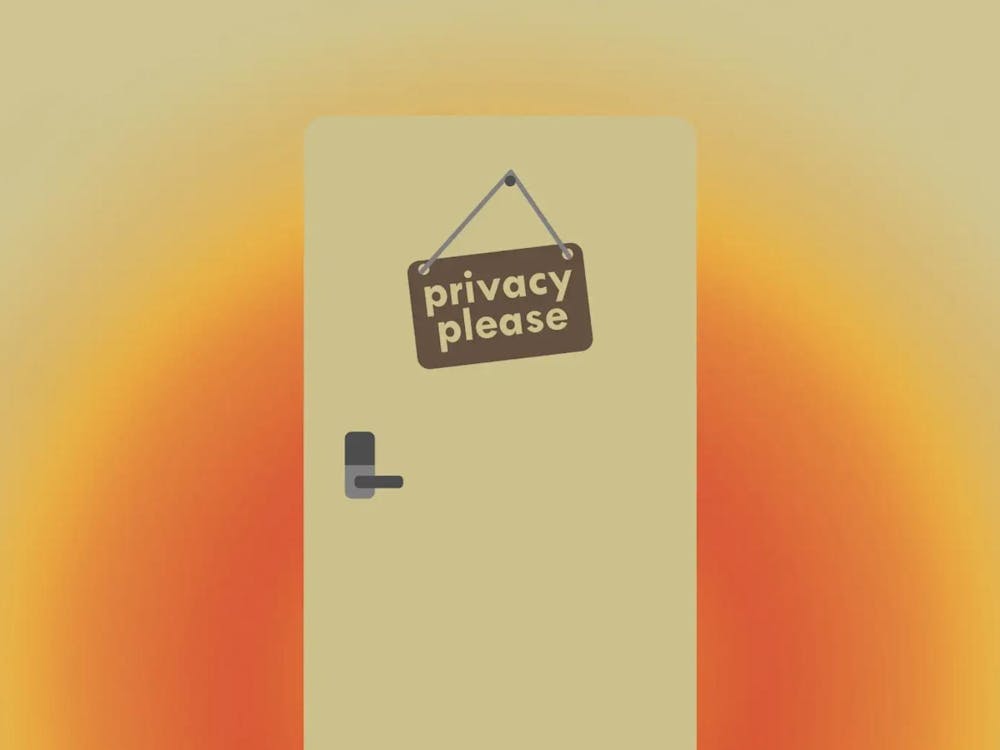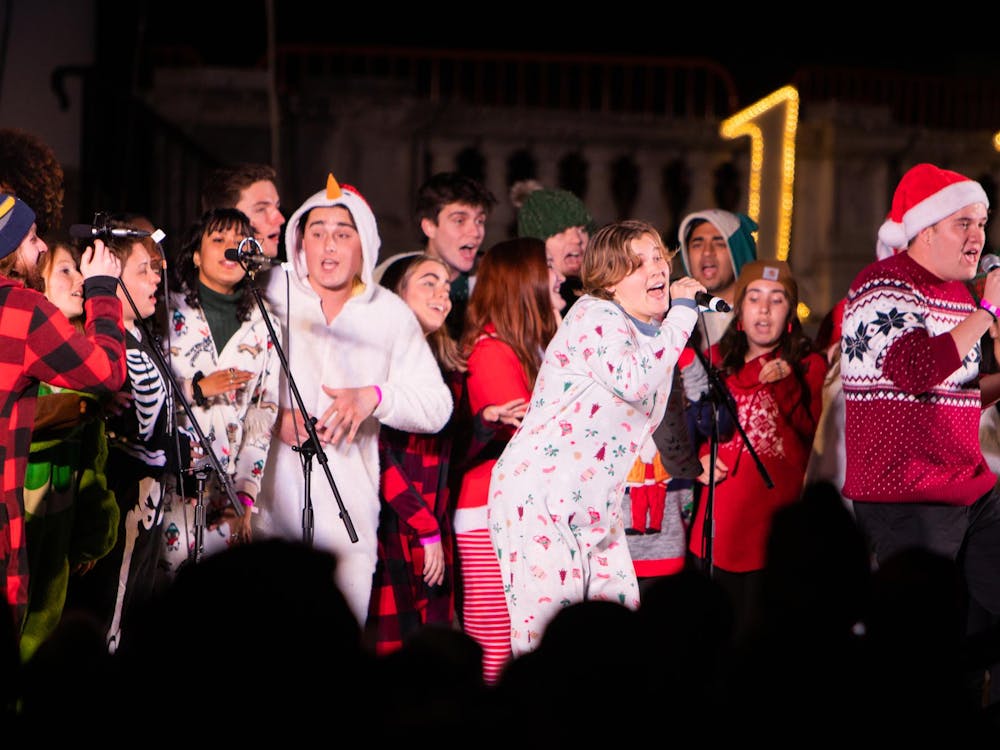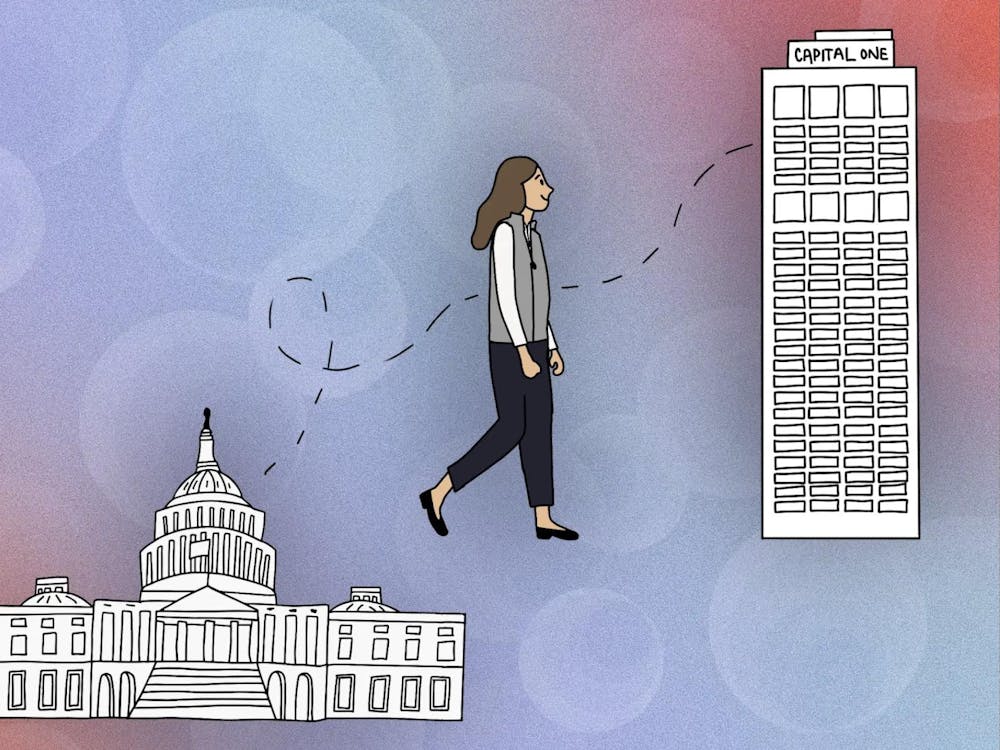With a range of academic programs and research focused on public policy, the University boasts numerous ways to prepare students for a future in policymaking. Alumni have gone on to serve in Congress and conduct policy research across the world. But in recent months, a team of undergraduates has worked to create a space for policymaking right here on Grounds, empowering students to identify, research and take action on public policy issues.
Second-year College students Arnav Dharmagadda and Alexandra Worms founded Virginia Policy Lab, a student-led think tank and non-profit organization, in March. Dharmagadda initially approached Worms with the idea for VPL in September of 2023. First-years at the time, the two students lived in the same dorm and shared an interest in public policy. However, they noticed that policy-related Contracted Independent Organizations stressed advocacy rather than directly working on policy.
“While there are a lot of really cool organizations ... that are adjacent to public policy … there isn’t a dedicated space [for] crafting and implementing public policy,” Dharmagadda said. “[We] started brainstorming [and] decided to create our own organization to do something like that.”
Dharmagadda and Worms were awarded a grant of $14,566 from the Jefferson Foundation Exploratory Fund to support the creation of VPL. They spent the summer conducting preliminary research for the organization’s first projects and laying the foundation for students to join in their work.
This semester, VPL began accepting members through an application open to all University students. Accepted students have worked in small teams over the course of the semester to research a policy implementation issue, brainstorm solutions, write proposals and meet with local stakeholders to carry out their solutions. Throughout this process, VPL has supported its members by aiding in data collection and providing funding to support their research.
Currently, VPL has 16 members working on four projects. Two of their main projects are centered on affordable housing in Charlottesville and the implementation of the Virginia Literacy Act.
In the housing project, VPL members are working with the City of Charlottesville to consolidate local housing data into a dashboard, where Charlottesville residents can view how funding for affordable housing is allocated between neighborhoods and how many new units have been built. Dharmagadda hopes that this dashboard will provide transparency about how the city is using housing funds.
Members are also working on a project regarding the Virginia Literacy Act of 2022, which was implemented this school year to help improve post-COVID-19 childhood literacy rates. The VPL team is collecting data about how different Virginia counties have implemented the act. Once this data becomes publicly available, VPL hopes their project will allow school districts to learn from each other’s successes and adjust their implementation processes to better serve students.
Adhvika Karthik and Ahryanna McGuirk, VPL members and first-year College students, said they wanted to work on the literacy project because of their experiences tutoring as a fifth-grade math tutor through Madison House and a middle school debate tutor through the Charlottesville Debate League, respectively. Both said these experiences inspired them to pursue a project through VPL focused on education. Karthik described the feeling of seeing the impact of their work reach beyond Grounds.
“One of the main reasons I joined the policy lab [was that] I want to be able to create actual change within not just Charlottesville but Virginia and be able to see that change actually happening,” Karthik said. “There's just so many different ways that we can actually create this effect of change with the resources the policy lab is giving us.”
Dharmagadda and Worms highlighted the fact that students are given freedom to pursue their own policy interests in VPL. Worms said they prioritize preserving members’ sense of investment and responsibility for their projects.
“We believed that everyone in the club does have ideas to contribute and that the best way to make sure that ideas and solutions are being created is for everyone to have an equal stake in the projects that we're working on,” Worms said.
As they look back on this semester, Dharmagadda and Worms reflect on their inspiration for VPL. Worms said she became drawn to policy work while serving on her county and local school boards in California during high school. For her, policy is a process of problem-solving that challenges her to “work backward,” looking back at where a policy’s implementation could have improved.
“Coming to Virginia, I was just so enthralled by the possibility to do [policy] work in another state so different from where I'm from, and that was how I contributed to the inception of the club,” Worms said. “Something that I'm hoping to continue to do is just working backward … working toward the solution that I want to see.”
Dharmagadda’s passion for public policy also stemmed from personal experiences. He said he became inspired to engage in policy work in college after getting involved in education policy during high school. For him, public policy is a driving force that can be used for the common good.
“I really do think government has such an important role in … correcting for some of the systemic issues that we see,” Dharmagadda said. “And I think public policy is the tool to do that.”





